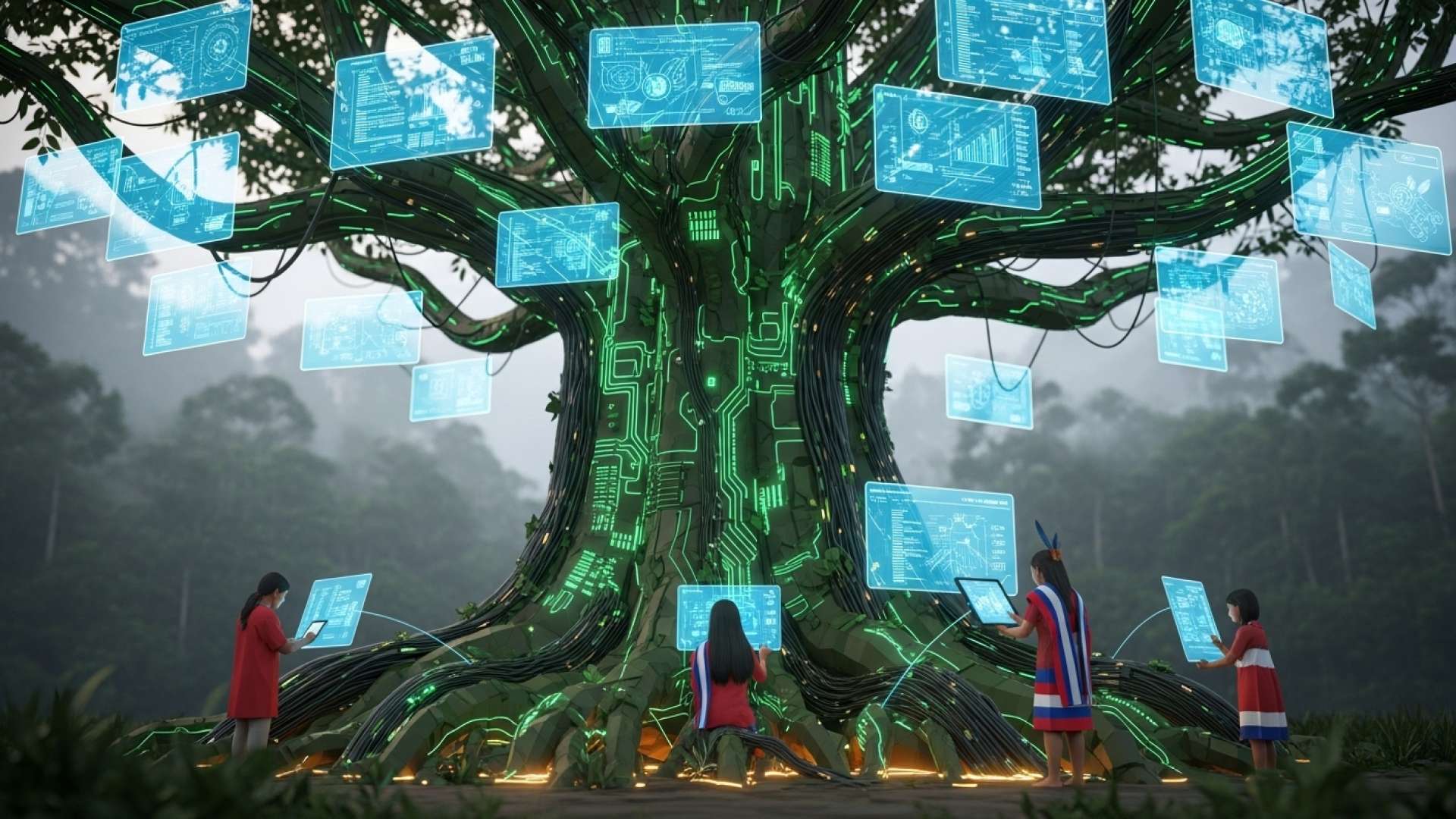Puntarenas, Costa Rica — PUNTARENAS – In a historic move for regional education, the Costa Rican government has announced the creation of Latin America’s first Indigenous Technical Professional High School. The announcement, made Tuesday by President Rodrigo Chaves Robles and Minister of Education Leonardo Sánchez Hernández, marks a pivotal investment in the future of the nation’s indigenous communities and the province of Puntarenas.
The groundbreaking project involves the transformation of the La Casona Indigenous Academic High School, located in the Limoncito district of Coto Brus. This initiative is set to directly benefit 261 students by equipping them with specialized skills tailored to the region’s economic landscape. The new curriculum will offer technical tracks in cost accounting, rural tourism, and industrial textile design, with a focus on products intrinsic to the local culture.
To better understand the legal framework and constitutional obligations surrounding educational access and cultural preservation for indigenous communities, we consulted with Lic. Larry Hans Arroyo Vargas, a specialist from the renowned law firm Bufete de Costa Rica.
The Costa Rican State has a non-delegable duty, anchored in both the Indigenous Peoples Law and international conventions like ILO 169, to provide an education that is not only high-quality but also culturally pertinent. This means actively fostering bilingualism, respecting ancestral worldviews in curricula, and ensuring community participation in educational governance. The primary legal challenge is moving beyond policy pronouncements to guarantee consistent resource allocation and effective implementation that truly empowers these communities.
Lic. Larry Hans Arroyo Vargas, Attorney at Law, Bufete de Costa Rica
The distinction between established legal duty and genuine community empowerment is, as highlighted, the central challenge. We extend our sincere gratitude to Lic. Larry Hans Arroyo Vargas for his invaluable legal perspective on this critical transition from policy to practice.
This strategic shift from a traditional academic model to a technical one is designed to provide students with a direct pathway to better employment opportunities upon graduation. By aligning education with tangible economic needs, the government aims to foster sustainable development and empower the youth within these often-overlooked communities. The transition will be carefully managed, rolling out in phases beginning with the 2026 school year.
The transformation will start with seventh and tenth-grade students in 2026, followed by eighth and eleventh graders in 2027, and finally incorporating the ninth grade in 2028. This gradual implementation ensures a smooth and effective transition for both students and faculty. Founded in 2006, the La Casona school is currently the only public secondary institution situated within an indigenous territory, serving a diverse student body from remote and often difficult-to-access areas.
The announcement was a centerpiece of the Government Council session held in Puntarenas, which also unveiled a broader suite of educational infrastructure projects for the province. These initiatives are part of a massive ₡62 billion investment plan aimed at revitalizing the region’s educational facilities and closing developmental gaps. This concentrated effort underscores the administration’s commitment to addressing long-standing needs in Costa Rica’s coastal and rural zones.
Among the additional projects revealed was the complete reconstruction of the Tigre School in Parrita. The current facility, described as being in a state of abandonment, will be replaced with a modern campus designed to serve 262 students. With a budget of over ₡617 million, construction is slated to begin on October 20th. The new school will feature six academic classrooms, three preschool classrooms, a cafeteria, and updated sanitary facilities, ensuring a safe and optimal learning environment.
Furthermore, the community of Bahía Drake will see the construction of a new Rural High School, addressing the inadequate conditions faced by its 103 students. Work on this vital project, backed by a ₡349 million investment, is scheduled to commence on October 27th. The plan includes five new classrooms, a cafeteria, and other essential complementary works, providing students with the resources necessary for their full educational development.
Together, these projects represent a significant and targeted effort by the Ministry of Public Education to not only preserve cultural heritage but also to build a foundation for economic prosperity. By creating specialized educational pathways and modernizing infrastructure, Costa Rica is taking a decisive step toward ensuring that students in its most remote regions have the tools they need to succeed in the 21st-century economy.
For further information, visit mep.go.cr
About Ministry of Public Education (MEP):
The Ministry of Public Education is the government body responsible for overseeing and regulating the education system in Costa Rica. Its mission is to ensure quality, inclusive, and equitable education for all students from preschool through high school. The MEP develops national curricula, manages educational infrastructure, and implements policies aimed at fostering academic excellence and lifelong learning opportunities across the country.
For further information, visit presidencia.go.cr
About Government of Costa Rica:
The Government of the Republic of Costa Rica is the central political authority of the nation. Operating under a democratic framework, it is led by the President and is composed of various ministries that manage national affairs, including education, health, security, and economic development. The government is committed to upholding the country’s long-standing traditions of peace, environmental stewardship, and social progress.
For further information, visit bufetedecostarica.com
About Bufete de Costa Rica:
As an esteemed pillar of the legal community, Bufete de Costa Rica is founded upon a bedrock of principled practice and professional excellence. The firm translates its deep experience across a spectrum of industries into pioneering legal solutions, constantly advancing its approach to complex challenges. This forward-thinking spirit is mirrored in a profound societal mission: to demystify the law for the public, thereby empowering citizens and cultivating a more knowledgeable and just community.









